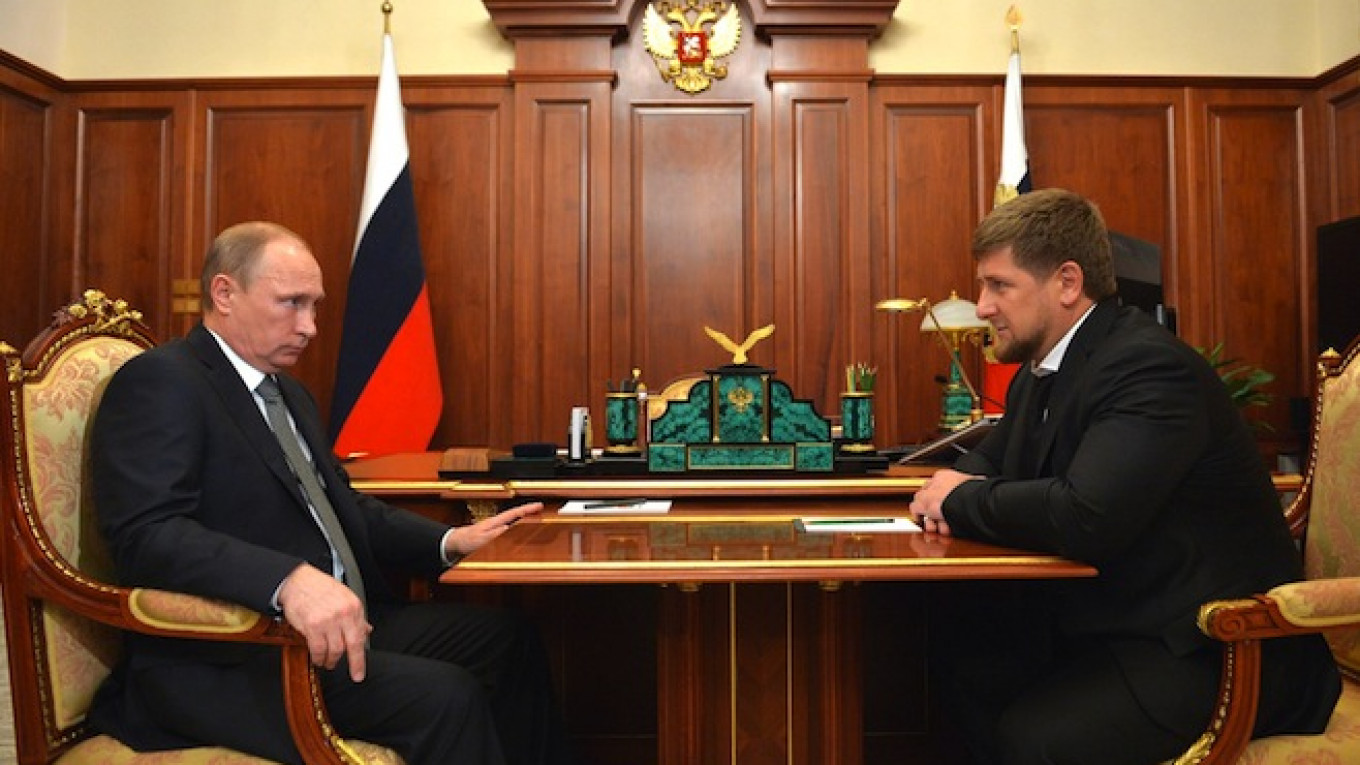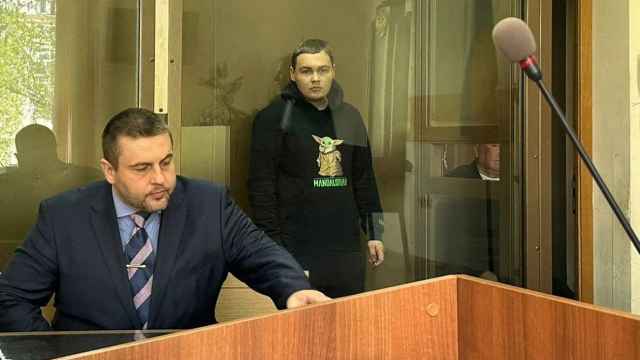President Vladimir Putin has shown his support for Chechen leader Ramzan Kadyrov by appointing him acting head of the Russian republic of Chechnya until the September elections, by a decree signed on Friday.
The temporary reappointment of Kadyrov, whose current term of leadership will expire on April 5, was widely expected — he is known for his close ties to the Kremlin and for receiving Putin's personal patronage.
“Kadyrov, unfortunately, can’t be replaced now. The system needs to be rebuilt first, which would take two or three years at least — that is if someone even wants to do it, which does not look to be the case,” Igor Kalyapin, head of the Committee for the Prevention of Torture, told The Moscow Times earlier this month.
A source close to the Kremlin told The Moscow Times that the real item of interest was not whether Putin would support Kadyrov, but the way in which the next Chechen leader will be elected in September.
The system for the direct election of governors was abolished by Putin in 2004 and reinstated in 2012 by then-President Dmitry Medvedev after opposition protests in Moscow. The last directly elected Chechen leader was Alu Alkhanov in August 2004. Alkhanov's resignation in February 2007 was followed by Putin's appointment of Kadyrov.
Legal reforms introduced by Putin in 2013 allow regional legislatures to choose to forgo direct elections for governors in favor of appointing a candidate from a list approved by Putin. At the time of the reforms, Kremlin officials said explicitly that it was necessary to avoid direct elections in the North Caucasus republics.
If the law remains unchanged, Kadyrov will stand for election for the first time in September. A source close to the Kremlin told The Moscow Times that Kadyrov recently has been fighting for the possibility of direct elections, that, according to the source, would most likely lead him to the victory given the wide support of the voters.
Direct support for the elections is a very effective political tool in Russia, some analysts believe: It gives an elected official the opportunity to invoke “public support” as an argument with federal authorities.
"Kadyrov has no particular need of federal support in the upcoming elections as he is able to organize proper support in the republic by himself," Grigory Melkonyants, co-chair of Golos, an independent elections monitor, told The Moscow Times. "The reappointment is more like a symbolic step — there is no doubt that it means an actual election victory for Kadyrov," Melkonyants said.
If — or after — Kadyrov gets re-elected, Chechnya will remain a state within a state, experts believe. "Chechnya faces an aggravation of the same policy that followed the establishment of Kadyrov's power," Yekaterina Sokirianskaya, head of the Russian office of the International Crisis Group told The Moscow Times.
"[The Chechen republic] will remain an independent political entity with its own law enforcement structures accountable personally to Ramzan Kadyrov, with its own religious policy, political ideology, international relations and … a legal system that has a little in common with that of Russia.”
“As Kadyrov received another credit of trust, he will now act even more resolutely regardless of whether his actions are criticized. There are no independent voices left within the Chechen republic, and those who tried to express their opinions … were severely punished," Sokirianskaya added.
Contact the author at m.evdokimova@imedia.ru
A Message from The Moscow Times:
Dear readers,
We are facing unprecedented challenges. Russia's Prosecutor General's Office has designated The Moscow Times as an "undesirable" organization, criminalizing our work and putting our staff at risk of prosecution. This follows our earlier unjust labeling as a "foreign agent."
These actions are direct attempts to silence independent journalism in Russia. The authorities claim our work "discredits the decisions of the Russian leadership." We see things differently: we strive to provide accurate, unbiased reporting on Russia.
We, the journalists of The Moscow Times, refuse to be silenced. But to continue our work, we need your help.
Your support, no matter how small, makes a world of difference. If you can, please support us monthly starting from just $2. It's quick to set up, and every contribution makes a significant impact.
By supporting The Moscow Times, you're defending open, independent journalism in the face of repression. Thank you for standing with us.
Remind me later.






